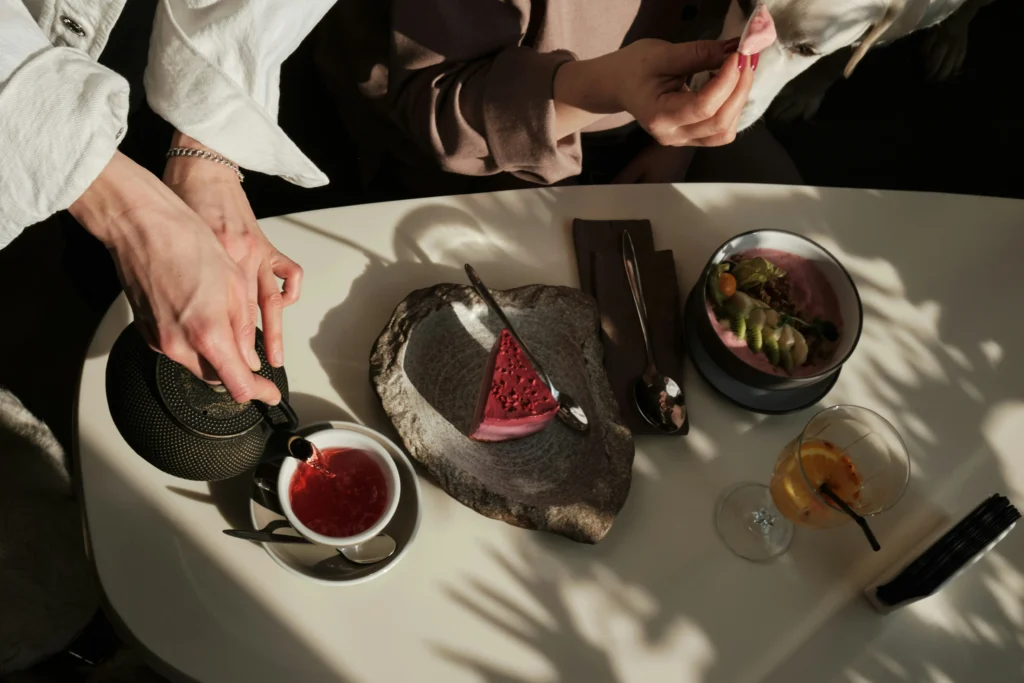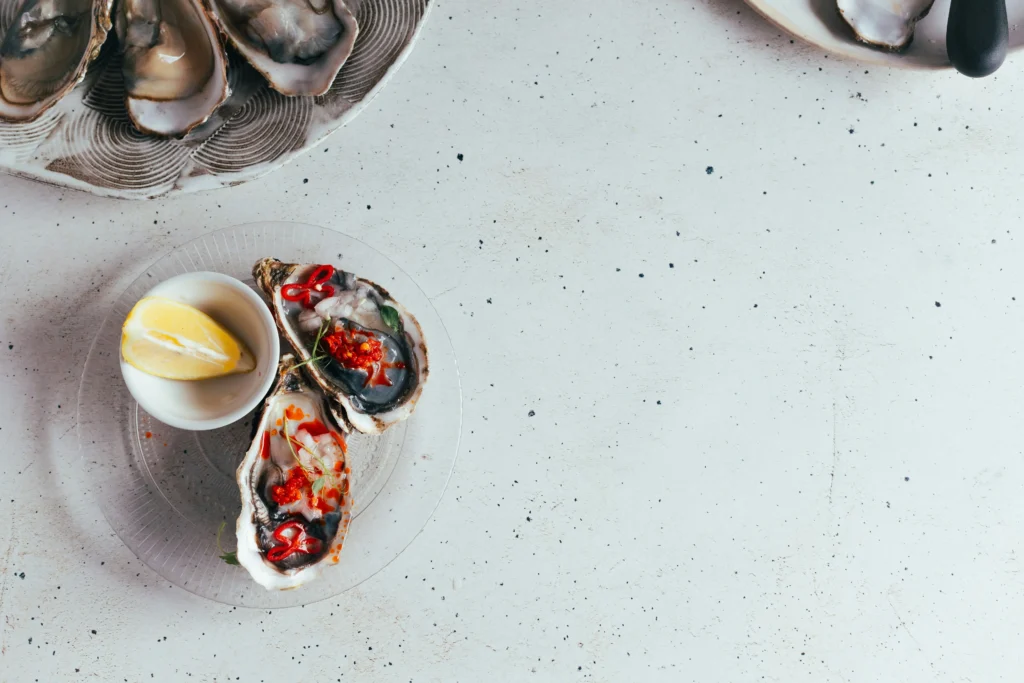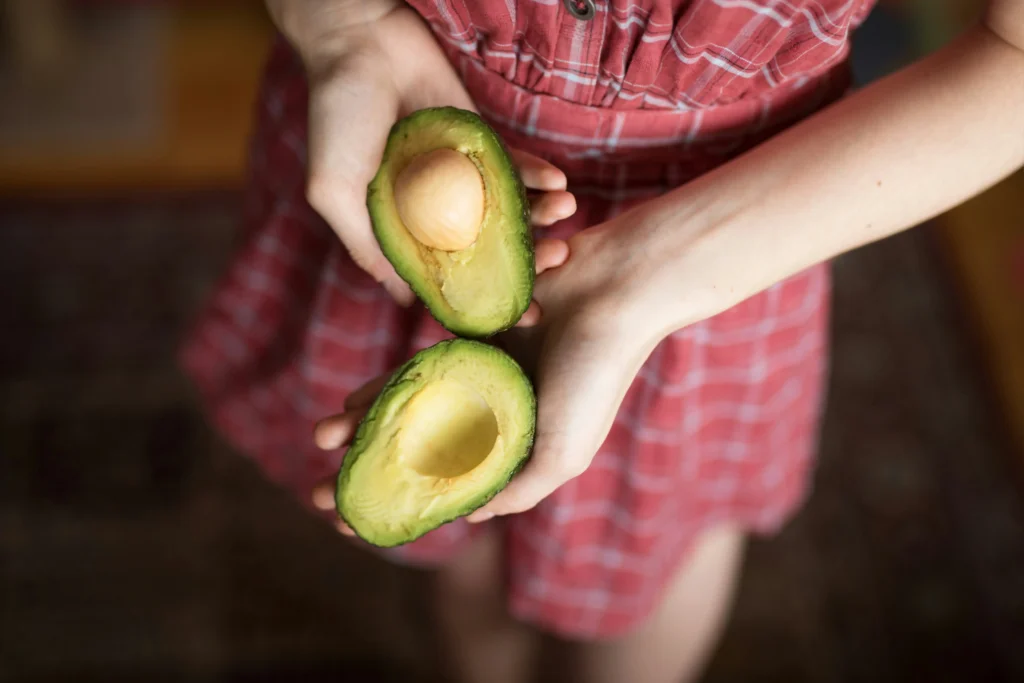Sexuality and cuisine are two areas of human life that have shared a fascinating interaction for centuries. From ancient myths to modern scientific research, there are countless beliefs and practices related to the use of food as a tool to improve libido and increase sexual pleasure. Various cultures over the centuries have experimented with different ingredients and recipes, believing that they can affect the power of desire and the quality of erotic life. Let’s focus on the fascinating connection between culinary and sexuality, and especially on the mysterious “aphrodisiacs” – foods believed to stimulate libido and increase the intensity of sexual sensations.
Table of Contents:
- Culinary aphrodisiacs – fact or myth?
- Biological basics – what does science say about it?
- Aphrodisiacs in different cultures
- Examples of culinary aphrodisiacs
Culinary aphrodisiacs – fact or myth?
Since ancient times, people have experimented with various substances and food ingredients in hopes of improving their sex lives. Many believed that certain products could act as magic elixirs, increasing libido, improving sexual performance and intensifying erotic sensations. These substances, known as aphrodisiacs, have been the subject of legends, myths and culinary practices for centuries.
However, despite a long history of believing in their effects, scientists are constantly investigating whether culinary aphrodisiacs actually have an effect on the quality of sexual life, or whether their effects are more related to the placebo effect.
The editors recommend: Reflections on a woman’s “NO”. On interpretation, relationship and mutual respect.
Biological basics – what does the science say about it?
To begin with, it is worth looking at the biological basis of this phenomenon. Many food ingredients contain chemicals that can affect the body, such as phytochemicals, vitamins, minerals or amino acids. Scientists are studying these ingredients for their possible effects on physiological processes related to sex, such as blood circulation, hormone levels and brain function.
However, most studies on aphrodisiacs show little or no conclusive evidence of their actual effects on libido or quality of sex life. Existing studies are often based on small samples, and results are sometimes contradictory or inconclusive. In addition, many of the effects of consuming aphrodisiacs may be more related to placebo than to the actual properties of the ingredients.
However, the psychological and cultural significance that aphrodisiacs have for the individual cannot be completely dismissed. Believing in their effects can itself lead to increased sexual desire and improved erotic sensations through the placebo effect.

Aphrodisiacs in different cultures
Since ancient times, people have experimented with various substances and food ingredients in hopes of improving their sex lives. Many believed that certain products could act as magic elixirs, increasing libido, improving sexual performance and intensifying erotic sensations. These substances, known as aphrodisiacs, have been the subject of legends, myths and culinary practices for centuries.
Aphrodisiacs are not an invention of modern times; since ancient times, various cultures have explored the relationship between food and sexual desire. In ancient Egypt, for example, aphrodisiacs were often used as part of religious rituals, and in Greek mythology the goddess of love, Aphrodite, was often depicted in a culinary context. Similarly, in Aztec and Inca cultures, the use of certain foods was considered a way to increase fertility and preserve virility. Scientists are studying these ingredients for their possible effects on physiological processes related to sex, such as blood circulation, hormone levels and brain function.
We will take a closer look at various culinary ingredients considered aphrodisiacs and an analysis of the available scientific evidence on their effects.

Examples of culinary aphrodisiacs
Many food ingredients have been attributed aphrodisiac effects for centuries, but scientific evidence of their actual effects on sex life is often inconclusive. Nevertheless, research on these ingredients and their potential effects on the body continues to be conducted to better understand their effects and importance for sexuality.
- Oysters: Oysters are one of the most famous culinary aphrodisiacs. They contain large amounts of zinc, which is essential for testosterone production and healthy sexual function in men. However, researchers suggest that there may be health benefits from consuming oysters, but their direct effect on libido is in question.

- Chocolate: Chocolate has long been associated with aphrodisiacs. It contains substances such as phenylethylamine, which can induce feelings of euphoria and stimulate feelings of closeness. In addition, chocolate contains flavonoids, which can improve blood flow and induce feelings of relaxation. However, the effectiveness of chocolate as an aphrodisiac is questioned, and most of the effects may be more related to the psychological aspect of its consumption.
- White truffles: white truffles, especially those from around Provence, were traditionally considered an aphrodisiac. Although research on their effects on sex life is limited, white truffles contain androstenol, a substance that can act on pheromone receptors in humans, which could theoretically affect sexual attraction.
- Saffron: Saffron is considered a luxurious and exotic ingredient that is also often attributed with aphrodisiac properties. Research on saffron suggests that it can improve mood and induce feelings of relaxation, which can indirectly affect sex life by reducing stress and improving mood.
- Avocados: Avocados are rich in vitamin E, which is key to healthy blood circulation, and also contain fatty acids that can help produce sexual hormones. However, as with many other aphrodisiacs, evidence of avocados’ direct effects on libido is limited.

- Almonds: Almonds are rich in zinc and selenium, minerals important for sexual health. In addition, they contain vitamin E, which helps improve blood circulation, which can benefit sexually.
- Poppy seeds: Poppy seeds are traditionally considered an aphrodisiac due to their subtle effects on the nervous system, which can increase sexual desire.
- Strawberries: Strawberries are often associated with eroticism and romance. They contain vitamin C, which is important for the production of sex hormones, and antioxidants that can support heart and circulatory health.

- Asparagus: Asparagus is rich in B vitamins, which can help regulate hormones and improve blood circulation. In addition, asparagus is associated with high levels of folic acid, which can affect reproductive health.
Although many food ingredients are traditionally considered aphrodisiacs, scientific evidence of their actual effects on libido and quality of sex life is often limited or inconclusive. Nevertheless, eating healthy and balanced meals can bring health benefits that can have a positive impact on sex life by improving overall well-being and physiological functions of the body.
Editorial recommends: Healthy and satisfying orgasms: practical strategies for all who want more intense pleasure





